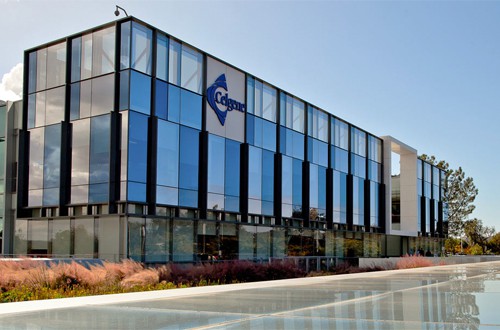
Celgene and Juno Therapeutics have become the latest in a string of pharma-biotech collaborations focusing on developing new cancer immunotherapies.
The two companies announced this week that they will leverage T cell therapeutic strategies to develop treatments for patients with cancer and autoimmune diseases, with an initial focus on Chimeric Antigen Receptor Technology (CAR-T) and T Cell Receptor (TCR) technologies.
This comes in the same week that Lilly announced a similar deal with UK-based Immunocore to test the biotech’s lead T-cell receptor based investigational therapeutic IMCgp100, in combination with Lilly’s galunisertib and merestinib, for the treatment of melanoma.
Under the terms of the collaboration, Celgene has the option to be the commercialisation partner for Juno’s oncology and cell therapy autoimmune product candidates, including Juno’s CD19 and CD22 directed CAR-T product candidates.
B-Cell Maturation Antigen (BCMA) is excluded as a target in this collaboration.
For Juno-originated programs co-developed under the collaboration:
- • Juno will be responsible for research and development in North America and will retain commercialization rights in those territories;
- • Celgene will be responsible for development and commercialisation in the rest of the world, and will pay Juno a royalty on sales in those territories.
The parties will share global costs and profits with 70% allocated to Celgene and 30% allocated to Juno. Celgene will lead global development and commercialisation, subject to a Juno co-promote option in the US and certain EU territories.
Upon closing, Juno will receive an upfront payment of around $150m, and in addition Celgene will purchase 9,137,672 shares of Juno’s common stock at $93.00 per share.
Celgene and Juno said they currently expect to complete the transaction during the third quarter of 2015.
Hans Bishop, CEO of Juno, said: “This unique collaboration is designed to catalyse and create tremendous ongoing scientific and product development synergy by leveraging each company’s strengths and assets.
“In addition to its established global presence and commercial reach, Celgene has leading small molecule and protein capabilities that complement Juno’s advanced engineered T cell capabilities. By doing this together, we believe we can more quickly and effectively develop potentially disruptive therapies in this new field of medicine and make them more readily available to patients worldwide.”
Growing market
This follows a recent spate of deals in cancer immunotherapy among big pharma firms and smaller biotechs, and comes off the back of recent approvals for immunotherapy drugs across a range of cancers.
This includes Dendreon’s Provenge, the first onco-immunotherapy that gained approval for prostate cancer in 2010.
In 2011, Bristol-Myers Squibb launched its melanoma immunotherapy Yervoy (ipilimumab) and just last year also saw approval for its next-gen cancer treatment Opdivo (nivolumab), which is expected to make $6bn at its peak with a range of other cancer licences set to follow in the coming years.
Opdivo is currently competing with another PD-1 cancer immunotherapy drug in the form of Merck & Co’s Keytruda (pembrolizumab), which also has a licence for melanoma.
More treatments in this class are also expected to come from AstraZeneca and Roche in the next two years.
This means that any drug approval from the Lilly/Immunocore collaboration will likely be late to the market. But if it proves to be highly efficacious – and priced below its competitors – it should be able to gain some share of the growing new cancer immunotherapy market.




